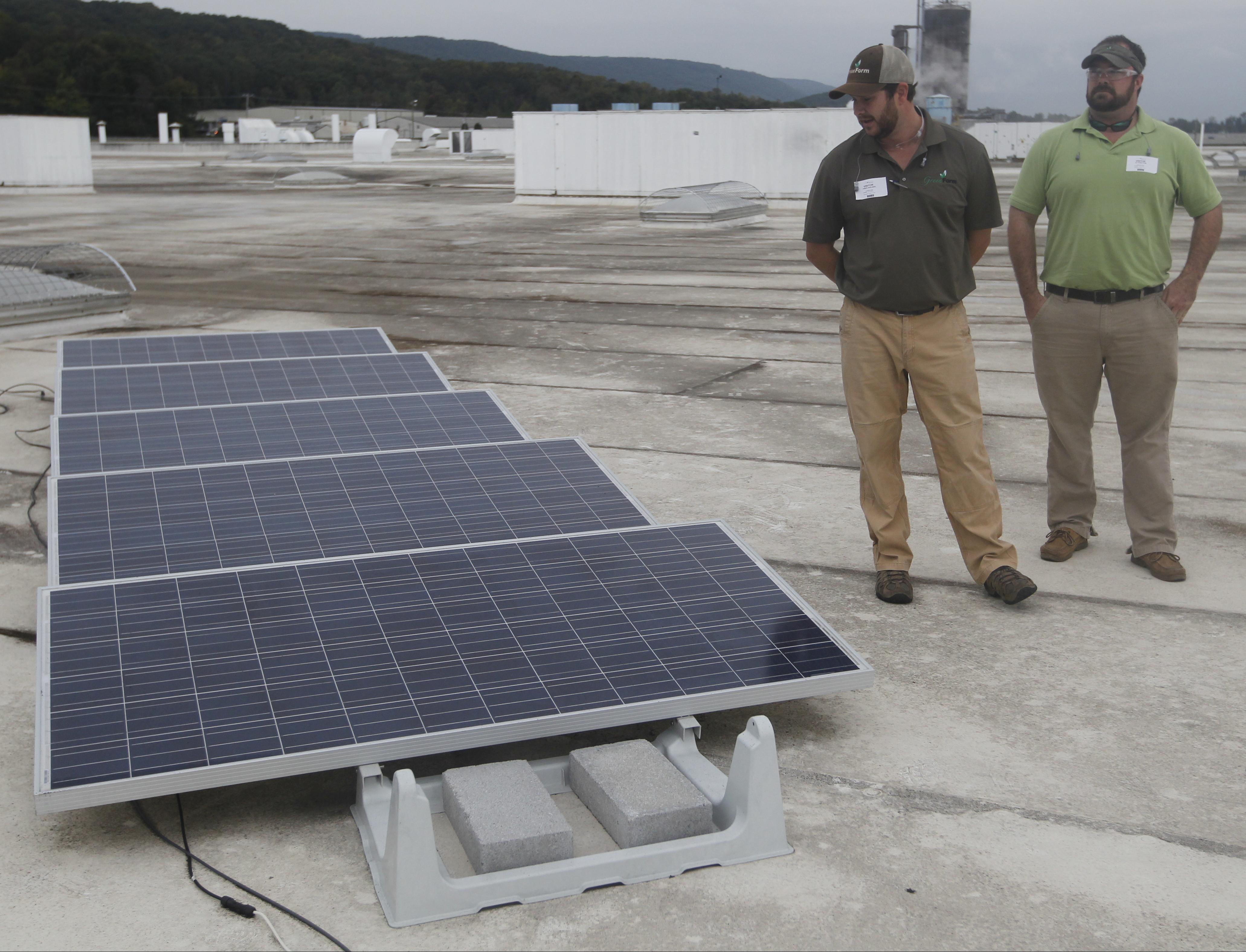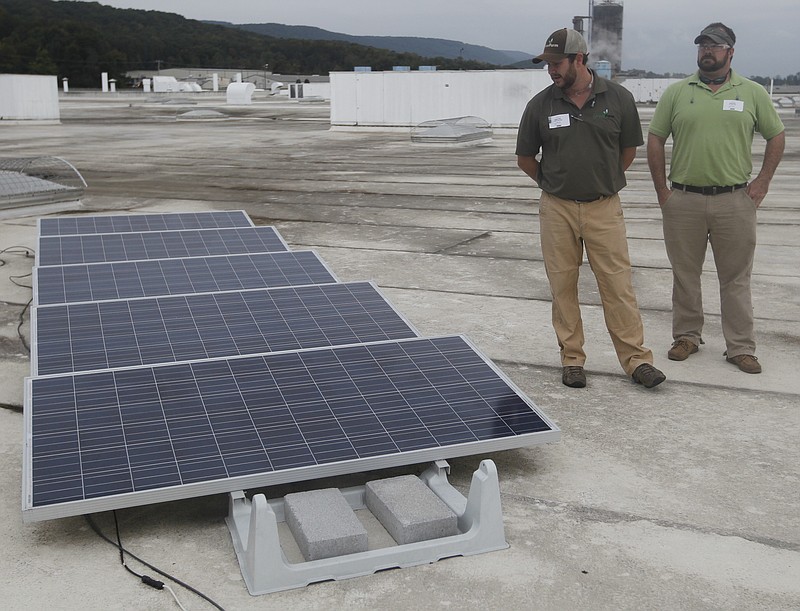 Fred Holder, left, and D.J. Shelton, with the company Greenform, stand next to an array of solar panels on the roof of the La-Z-Boy furniture factory in Dayton, Tenn. The factory has taken steps to become more environmentally friendly which include installing a starter array of solar panels on the roof and using battery-operated power tools and energy efficient lighting on a manufacturing pod.
Fred Holder, left, and D.J. Shelton, with the company Greenform, stand next to an array of solar panels on the roof of the La-Z-Boy furniture factory in Dayton, Tenn. The factory has taken steps to become more environmentally friendly which include installing a starter array of solar panels on the roof and using battery-operated power tools and energy efficient lighting on a manufacturing pod.The Tennessee Valley Authority is cutting what it pays for power generated from rooftop solar panels - a change that environmentalists and solar installers complain will undermine the growth of solar power in the Valley while other areas of the country are expanding solar generation.
TVA officials insist they aren't abandoning solar or other renewable power sources, which are projected to generate a bigger share of power in the future. But after a decade and a half of incentives and subsidies for small-scale solar power producers, TVA plans to cut the premium it pays above retail rates next year and is capping solar incentive programs at 20 megawatts in 2016, down from 130 megawatts this year.
"You can't do that and not expect to kill some of the companies that have been depending on this for the last 10 years and grown up around this," said Gil Hough, president of the Tennessee Solar Energy Industries Association.
Steve Johnson, president of Lightwave Solar - Tennessee's biggest solar power installer - urged TVA directors Friday not to be fooled by what TVA's staff is telling them about the costs and benefits of solar generation.
"The less expensive solar power becomes, the more TVA fights it," said Johnson, whose company sales plunged from $10 million to $3.6 million during a previous TVA cutback in solar incentives. "Your tenure on the TVA board shouldn't be about allowing the dismantling of the solar power industry."
But TVA President Bill Johnson said the utility has already committed $1.6 billion to buying solar power and will continue to buy more solar generation, especially that generated at bigger, more efficient solar farms.
But the TVA CEO said the utility must strike the right balance between helping the emerging solar power industry and its carbon-free power generation and keeping electric rates affordable for the 9 million customers it serves. When TVA pays a premium for solar power - and still has to pay to transmit such power from a variety of sources - that raises TVA's overall costs and can push up rates.
"We have invested $8 billion in renewable energy and with our hydroelectric dams we currently generate about 15 percent of our power from renewable sources - as much as any major utility outside of California," TVA's Johnson said.
TVA recently completed an assessment of solar power and other renewable energy sources through its Regional Resource Council and determined that TVA was paying about 40 percent more for solar power than it was worth to the utility. TVA, which once paid as much as 12 cents per kilowatthour above retail rates for solar-generated power, is phasing out it above-retail rate payments to solar generators and in 2016 will pay the equivalent of retail, end-use rates for surplus power generated by its customers with solar panels and brought on to TVA's grid. That is still above the wholesale rates TVA pays for other purchased power, Johnson said.
But solar installers that grew up in the Valley when TVA was doing more to promote small scale solar projects contend that changing the subsidies now will undermine their industry and take away jobs.
Carlos Mayer, a sales executive for the solar installer Vissolis Inc., in Franklin, Tenn., said new solar installations are growing in other states, but not in the Tennessee Valley. Tennessee doesn't offer state tax incentives like North Carolina and TVA isn't pushing solar generation as much as Georgia Power Co., he said.
"TVA should be a leader and I think you can do much better to help support this clean and renewable power source," Mayer said. "Look across the border in Georgia and North Carolina and you'll see they are doing more."
Charles Ebinger is a senior fellow in the Energy, Security and Climate Initiative at the Brookings Institution. He said it's true the smaller companies might not be able to compete if TVA stops incentivizing smaller projects.
"There are winners and losers in all these policy decisions," he said. "I think the critical point is solar really has come down so much that utility-scale solar is competitive in many markets."
Ebinger said what TVA is doing is not an aberration.
"A lot of utilities around the country are recognizing that solar is competitive and as a result don't feel the need to continue subsidies."
The Associated Press contributed to this report.
Contact Dave Flessner at dflessner@timesfreepress.com or at 757-6340.
